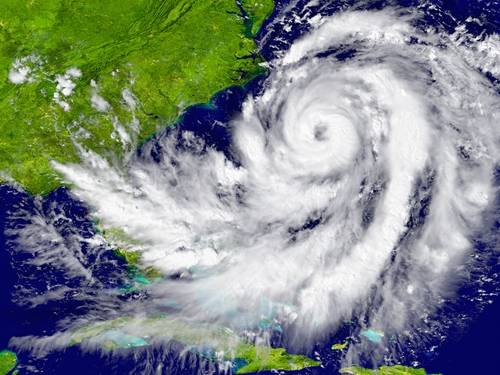Hurricane season spans from June 1 to November 30 in the Atlantic and May 15 to November 30 in the Eastern Pacific region. According to USA Today, 2015 will likely be relatively quiet when it comes to hurricane development in these regions. However, properly preparing for these severe storms is crucial.
Prepare for a Hurricane
It is important to have a game plan in case a destructive tropical storm hits. The American Red Cross recommended having flood insurance for damages caused by this type of weather. Make sure you and your family are fully aware of an evacuation plan in case of an emergency. Know where you can go and stay if forced to flee. It is also a good idea to familiarize yourself with the community response plan. If you receive word that a storm is heading your way, consider finding a storage facility and keeping your belongings somewhere safe during a hurricane. If a tropical storm develops near your home, ensure you have at least three days worth of food and water. In addition, you may want to gather the following items:
- First aid kit
- Extra batteries
- Flashlight
- Any medications
- Extra money
- Camera to record any damage that occurs
- Rain gear
- Cell phone chargers
Know the Difference between Watch and Warning
The Red Cross noted a hurricane watch indicates there is a hurricane threat in place during the next 48 hours. You will want to tune in to a dependable weather channel and provide your family with a quick reminder of your evacuation plans. With a hurricane warning, the conditions will likely reach your home within 36 hours. If you are instructed to leave your home, evacuate immediately to better ensure the safety of you and your family.
Recover after the Storm
Following a hurricane, it is important to continue listening to a trusted weather channel or news source. If authorities forced you to evacuate your home, do not return until you have been informed it is safe to do so. Because tap water may be infected or unsuitable for drinking, use bottled water until you know it is not contaminated, and you and your family can safely ingest it. If substantial damage occurred to your home or property, enlist the help of a professional to ensure everything is properly addressed. To accommodate any of your storage needs, head to your local SecurCare Self Storage facility and speak to our friendly staff today.
